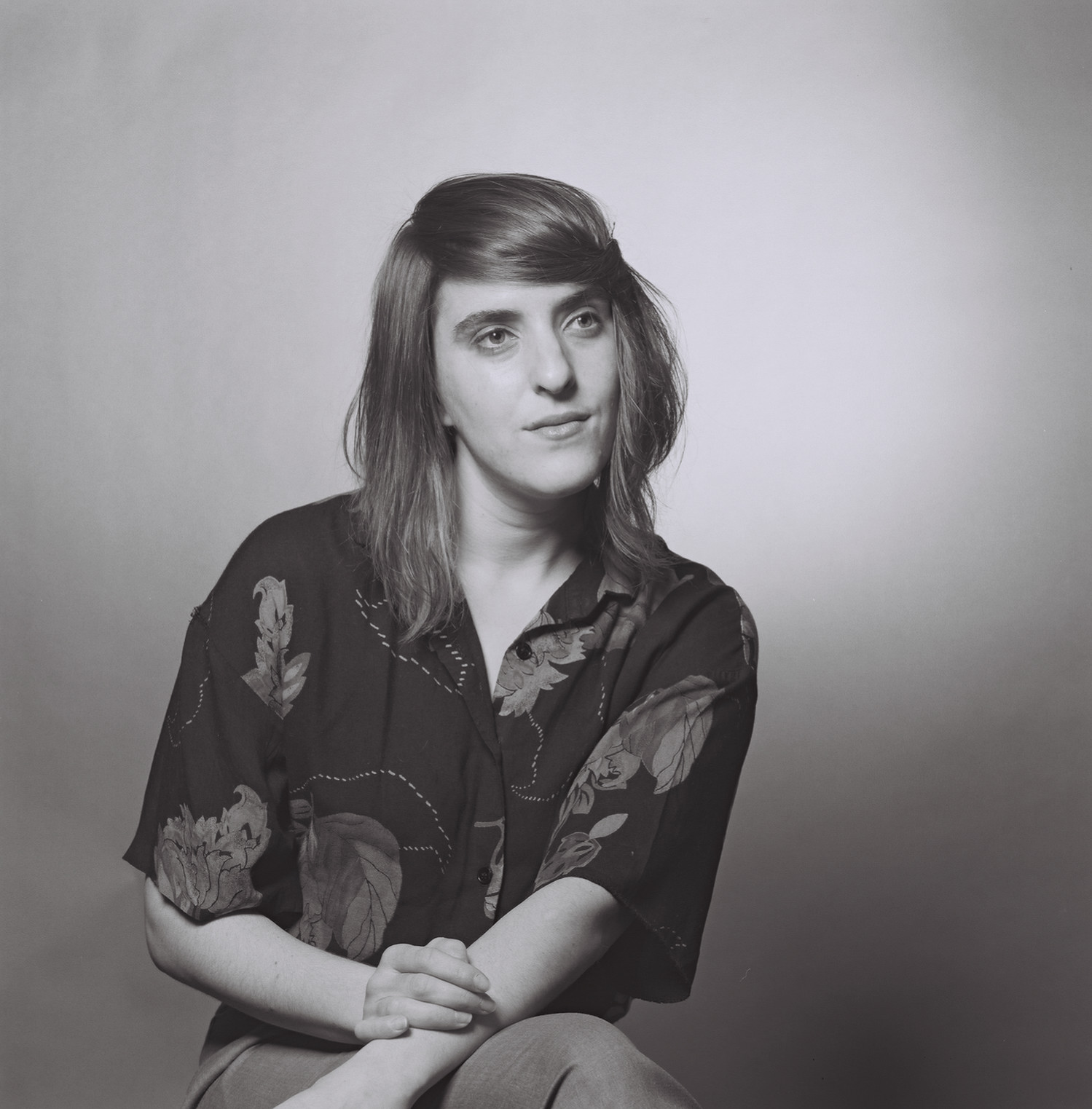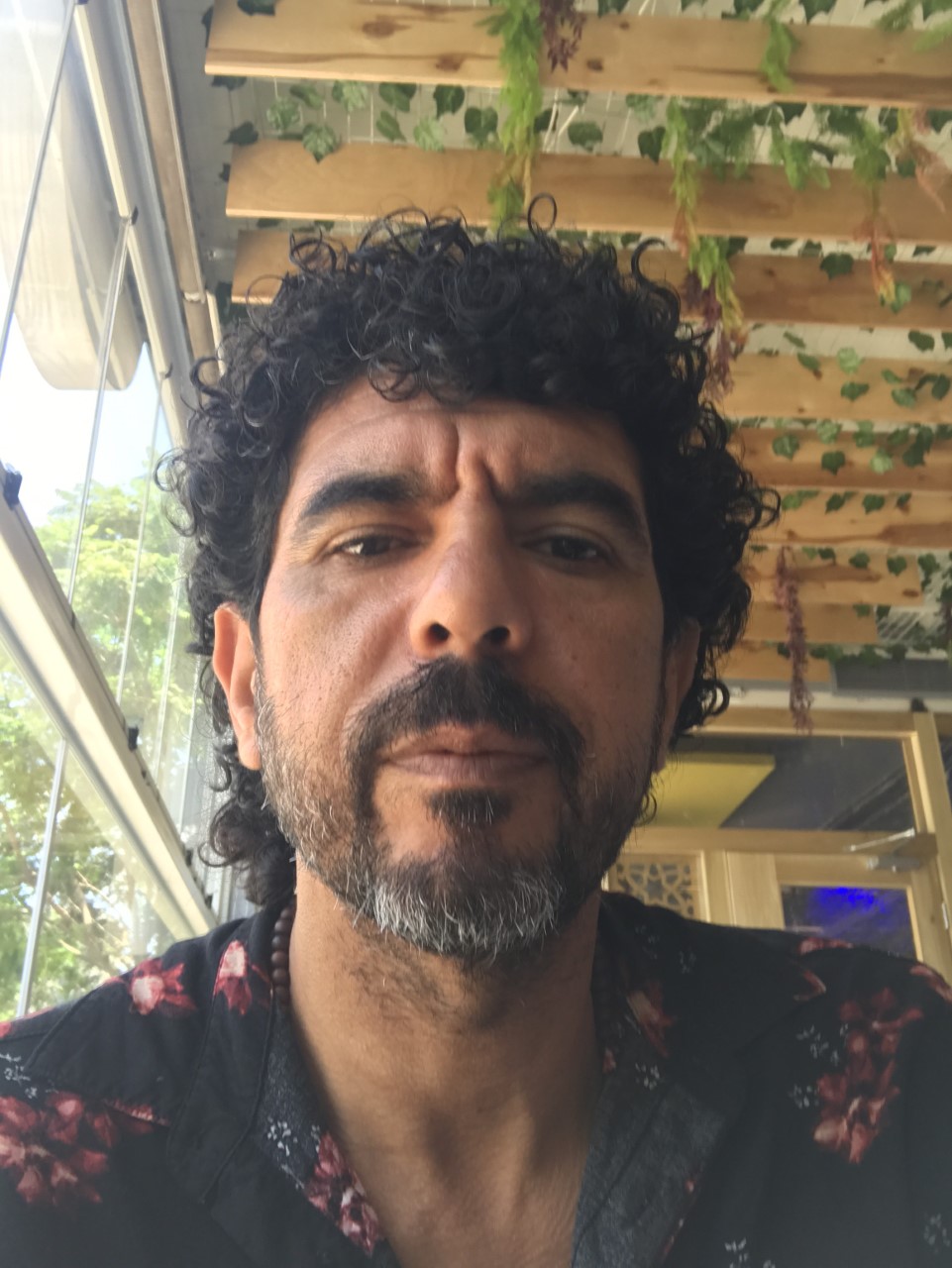Sulaiman Khatib (“Souli”) co-founded and co-directed Combatants for Peace, a group of former Israeli soldiers and Palestinian fighters who come together to work nonviolently for peace.
Note: In what follows, Sulaiman’s words are smoothed for grammar and italicized. (We have a friend who is on a crusade against italics, from the belief that they indicate something—person or language—that is devalued. Here, to the contrary, italics designate importance.)
**
In 1983, Mubaraq Awad, the famous Palestinian teacher of nonviolence, made a suggestion about flowerpots. He urged Palestinian citizens of Israel, who’d been displaced from their homes in 1948, to place small flowerpots in the hands of their children.
His idea went like this. The children of each family would visit their ancestral home, in which Israelis now lived. They would knock on the door and when it opened, they would smile. They would introduce themselves and kindly explain that their grandparents had built this house. They would ask if they could plant a flower in the garden, to remember.
Proposals like this would profoundly influence the first intifada and are still alive today. But in some moments, they can appear impossible. Perhaps because they seem to require a certain sort of preparation—the deep, internal work of getting ready to face what harms you with kindness. Or perhaps it’s simply because actions like these seem so small in the face of the big systems they aim to change.
Sulaiman Khatib, a Palestinian peace activist who grew up in the West Bank village of Hizma, has taught me to look more closely at all this. Some years ago, Souli asked me—a Jewish anti-Occupation activist—to write a book that would hold his story.
He asked for many reasons we are still learning to understand. But one of them, I think, was to convince me and many others that there is time for internal preparation and dialogue, two things he sees as inseparably linked.
**
When he was 13, Sulaiman began resisting Israeli occupation. At night, he drew hasty pictures on public walls of Palestinian flags, which were illegal under Israeli law. He taught himself how to make small ineffectual bombs, recruited friends to join him, and eventually stabbed an Israeli by a clear spring. He would spend the next 10 years of his life in Israeli jail.
Through reading, hunger strikes and other mysterious processes that refuse to be named, Sulaiman left jail committed to nonviolence. He emerged committed not only to nonviolently resisting Occupation, but to dialogue with Israelis and Jews as a value in itself.
After jail, he climbed an icy mountain in Antarctica with other Palestinians and Israelis; he brought Israeli and Palestinian children together to play soccer; and he co-founded a jointly led Palestinian and Israeli movement called Combatants for Peace.
Since then, his work has traveled to many places. At times, he’s spent a great deal of energy on nonviolent action. Most often, though, his work has centered on dialogue—a practice that has continued to change him profoundly.
This work has led him to believe that both Palestinians and Jews have a legitimate historical connection to this place where he was born. And that acknowledging this truth holds great power for transformation.
He’s learned that when he offers acknowledgement to Jews and Israelis who seem resistant to Palestinian stories, something in them melts. They become more able to hear what he has to say about the reality of Palestinian life under Occupation.
I feel the work of the heart and the emotions, he says, to feel safe, and recognized … this is very important. For Israelis, with their history of trauma, they have no space to accept blaming and shaming. That’s why we need to help each other understand, out of love and acceptance, rather than anger. This is for the sake of both peoples. Because I believe changing individuals’ hearts and souls and minds will help change the bigger picture, the big reality.
Even in his certainty, Souli struggles with this work—the sense that while he’s talking and opening his heart, the ground beneath Palestinians is disappearing. So at the end of a recent healing workshop, when many Americans and Israelis were proclaiming their commitment to love and forgiveness, he couldn’t quite echo them.
Looking around the candle-lit circle, he thought of his family’s agricultural land taken by Israel’s separation wall—a loss, he believes, that ultimately killed his father. He thought about how settlement growth around his home village of Hizma has cut his family’s access to the city they’ve always known as theirs: Al-Quds (Jerusalem). He thought about his nephews, who are accustomed to the nightly sound of Israeli soldiers in their village’s streets.
When it was my turn to speak, I shared my truth. I said, this is not easy for me. I’m challenged. I want to commit totally. To show love as much as I can. Including to the people that harm me directly or my family or my people. But it’s hard when we’re under fire. In this mess of what exists.
At the same time, I’m playing with it in my heart. And I’m trying to take these ideas into practice, in real life.
**
One night, in real life, Souli was driving from Hizma back to Ramallah when he saw a small light beside the road. He slowed down, but it took a moment to decide to pull over, to stop entirely.
When I came closer, I saw two religious Jewish settlers, a wife and a husband. He wore a kippah. And they had kids in the car. I could tell they needed help.
He wasn’t sure he should stop. He was nervous the settlers would see his car’s Palestinian license plates. That they would become afraid and hurt him.
I slowed down, opened the window. I said “Atem srichim ezrah?” in Hebrew.
Hearing his easy use of Hebrew, the settlers relaxed. Their car was dead, they told him; they needed someone to jump the battery. He parked his car just in front of theirs and spent 20 minutes with them, talking, laughing a bit, trying to help. The man told Souli that they lived in Shilo, a settlement about halfway between Ramallah and Nablus. Several times, the man asked Sulaiman where he’d learned his Hebrew.
Looking down at the settler’s hip, Souli saw the pistol there and paused.
I told him that my father worked for the Jerusalem municipality and spoke Hebrew. I told him I work for a Palestinian-Israeli organization. I didn’t tell him the whole story. Because I was afraid. I was trying, intellectually, to understand his need to have the weapon. His fear. And also trying not to think about it, honestly. Because the power here is not equal.
But they were friendly with me, and I was friendly with them. He kept asking me, “How do you see the solution?”
“At this moment,” I told him, “I can’t think of solutions. Honestly. One state, two states, three states, I don’t care. But the situation right now is not comfortable for me.”
I told him, “I don’t have a problem with you personally—or where you want to live. I have a problem with the unfair system. Once we are on the same level, things will change.”
It was really beautiful, actually. He was thankful. I told him, I guess we should do this more often, each one of us. To help each other, despite the system.
As Souli left, the settler smiled at him. “Ramadan Karim,” he said.
**
Souli says it’s quite common for Palestinians and Jewish settlers to help one another with roadside car trouble. And this seems a bit remarkable. Because in urgent political moments, acts of individual kindness can seem truly dangerous. Not only if the person you’re helping carries a pistol at his hip. But because we need all our energy and power to organize against a system that values the life of the man with his pistol over another’s.
But these acts of kindness can strengthen our energy and power, inviting us to practice, in this moment, for the world we’re trying to summon. And it’s more than that.
When Souli reads the first draft of this essay, he offers a corrective and asks me to go further.
Instead of talking about an unknown just future, why not try to live it right now, with full understanding of the harsh reality?
This is what he was doing, he explains, on a Passover retreat in the Sinai Desert. He’d traveled there with a group of Palestinian, Israeli and international friends. For seven days, they spoke about the story of Jewish freedom, the water and salt in which we dip our ritual greens.
The whole journey in Sinai affected me very deeply, talking about the Jewish story; I feel I have a connection to it. I also talked about Palestinian Prisoner’s Day, the water and salt we drank during hunger strikes. I talked about the freedom and dignity that our people are seeking, both peoples, I would say.
In the desert one night, as the moon rose very slowly, everyone began dancing and an Israeli woman approached Souli.
She’d never met Palestinians. She was a normal person, not an activist. We didn’t really talk. But with the energy of dancing, by the sea, under the full moon, she was so moved. And she said to me one sentence: “I can’t believe we are enemies.”
Things like this give me hope, beautiful feelings, imagination of how things can be. I’m aware of the reality. I live in it. But I want to keep the vision and the dream of a different reality, to keep it out there. And I want to stay up there. Even with all the challenges.
We’re trying to find the way now, which is complicated. And when people are trying to change a system, which is so big, they can feel helpless. But acts of kindness can be done easily and daily and now.
We need this to heal the individual and communal trauma, to lead us to a new place, more healthy and trusting. Not coming from victimhood or deep wounds.
I want to surrender to this journey, with full confidence of my own narrative and story and belonging to this land. I’m aware it’s a very hard struggle to exit the boxes of right and wrong. But we need this. To save it all together. Not to be against anyone. That’s the idea of nonviolence: to liberate all sides. I really believe in this.
That’s why to live this utopia, for moments, is really important. To show a new place, a direction full of hope. To give you motivation, to feed you. To drink from this.
Some days, I struggle listening to Souli speak on the level of the individual, when the systems we’re fighting feel so large. Other days, what he says makes me think of the children with the flower pots, and I know he’s right. That dialogue and internal preparation are not just incantations for the future, but immediate tonics. That with these tools, we can create widening spaces that match the future world we want, right here, in the present.
Watch the authors and Rabbi Sheila Weinberg, in discussion.
This essay is part of a book (as yet untitled) by the authors that will be published by Beacon Press in 2021.








